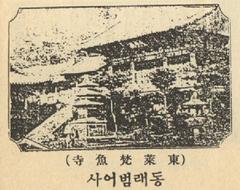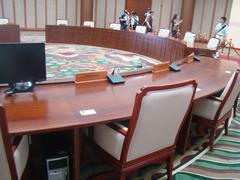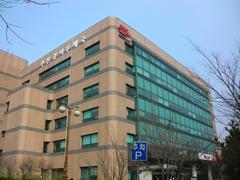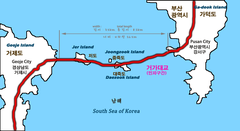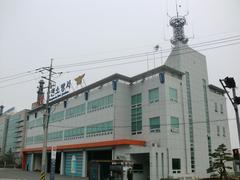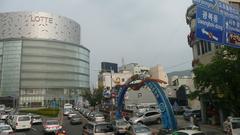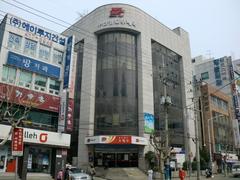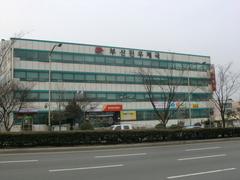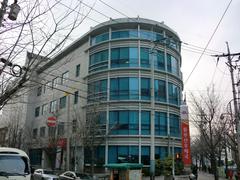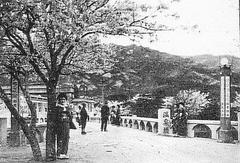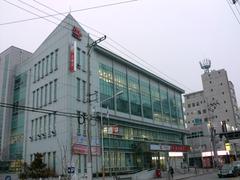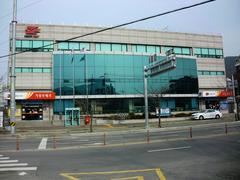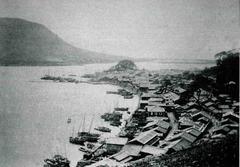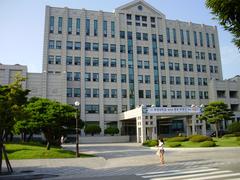Suyeong Station Visiting Hours, Tickets, and Travel Guide: Busan Historical Sites
Date: 15/06/2025
Introduction to Suyeong Station and Its Significance in Busan
Located in the vibrant Suyeong-gu district of Busan, South Korea, Suyeong Station is a crucial interchange on Busan Metro Lines 2 and 3. Since its opening in 2002 (Line 2) and expansion in 2005 (Line 3), the station has become an essential transit hub, facilitating seamless connections between eastern, central, and western Busan. More than a transport node, Suyeong Station serves as a gateway to significant cultural, historical, and coastal attractions, making it a prime starting point for both locals and visitors to explore Busan’s diverse offerings. With accessibility features and modern amenities, the station ensures a comfortable experience for all travelers. This guide provides everything you need to know about visiting Suyeong Station—operating hours, ticketing, travel tips, nearby historical sites, and more. For official transit and tourism information, refer to the Visit Busan website and the Busan Metro official page.
Table of Contents
- Introduction
- Suyeong Station Overview
- Visiting Hours and Ticketing
- Accessibility and Travel Tips
- Nearby Attractions and Historical Sites
- Cultural Events and Festivals
- Visuals and Multimedia
- Frequently Asked Questions (FAQ)
- Conclusion
- References & Further Reading
Suyeong Station Overview
Suyeong Station stands as a pivotal metro interchange, connecting Line 2 (Green Line) and Line 3 (Brown Line), and supports tens of thousands of passengers daily. Its location along major roads such as Suyeong-ro and Gwangalli Road enhances accessibility to key destinations, including Gwangalli Beach and Suyeong Market. The station’s efficient design, with elevators, escalators, and tactile paving, ensures comfort for all users, including those with disabilities and international visitors.
Location: Suyeong-gu, Busan
Lines Served: Metro Line 2 and Line 3
Nearby Roads: Suyeong-ro, Gwangalli Road
Visiting Hours and Ticketing
-
Operating Hours:
- First train: approximately 5:00 AM
- Last train: approximately midnight
-
Ticketing:
- Single-ride tickets are available at station kiosks.
- Rechargeable cards like T-money and Cashbee are widely accepted.
- Free transfers between Lines 2 and 3 within the station.
Note: While Suyeong Station itself does not require an entrance fee, some nearby attractions may have separate admission charges. For unlimited rides and added convenience, consider purchasing the Visit Busan Pass.
Accessibility and Travel Tips
- Facilities: Elevators, escalators, tactile paving, and clear multilingual signage.
- Transport Connections: Integrated with city bus routes and taxi stands.
- Best Time to Visit: Spring and autumn offer pleasant weather for outdoor exploration.
- Travel Tips:
- Use a T-money or Cashbee card for hassle-free transit.
- Avoid peak hours (7:00–9:00 AM, 6:00–8:00 PM) for a more relaxed journey.
- Check real-time schedules and route maps via the Busan Metro mobile app.
Nearby Attractions and Historical Sites
Suyeong Station provides easy access to several top attractions:
Suyeongseong Fortress
A historic Joseon Dynasty fortress that once protected Busan, Suyeongseong offers panoramic city and coastal views. The site stands as a testament to the region’s military history and cultural legacy.
Gwangalli Beach
One of Busan’s most famous beaches, Gwangalli is renowned for its soft sand, vibrant atmosphere, and spectacular views of Gwangan Bridge (Diamond Bridge). The beachfront is lined with stylish cafes, restaurants, and nightlife venues.
Suyeong Market
Experience authentic Busan through Suyeong Market, known for its fresh seafood, traditional dishes like milmyeon (wheat noodles) and dwaeji gukbap (pork soup with rice), and bustling local energy.
Millak Waterfront Park & Suyeong Sajeok Park
Relax at these scenic parks, perfect for picnics, cultural events, and leisurely walks with partial views of Gwangan Bridge.
Cultural Events and Festivals
Suyeong-gu is home to several annual festivals and cultural events, easily accessed from Suyeong Station:
- Gwangalli Eobang Festival: Highlights the region’s fishing heritage with performances, seafood tastings, and traditional games.
- Traditional Craft Workshops: Offered seasonally, these workshops provide hands-on experiences in local arts and crafts.
Visuals and Multimedia
Explore photo galleries, virtual tours, and videos of Suyeong Station and nearby sites on the Visit Busan website.
Alt text examples: “Suyeong Station Busan”, “Panoramic view of Suyeongseong Fortress”, “Gwangalli Beach night scenery”.
Frequently Asked Questions (FAQ)
Q1: What are Suyeong Station’s operating hours?
A1: Services run from about 5:00 AM to midnight daily.
Q2: How do I purchase tickets?
A2: Tickets are available at station kiosks or by using rechargeable transportation cards. Tourist passes like the Visit Busan Pass are also accepted.
Q3: Is Suyeong Station wheelchair accessible?
A3: Yes, the station features elevators, tactile paving, and ramps for accessibility.
Q4: What attractions are near Suyeong Station?
A4: Suyeongseong Fortress, Gwangalli Beach, Suyeong Market, and Millak Waterfront Park are all within easy reach.
Q5: Are there guided tours available?
A5: Busan City Tour Bus routes connect at Suyeong Station, offering guided sightseeing options.
Additional Highlights: Key Busan Historical Sites Accessible from Suyeong Station
United Nations Memorial Cemetery
Located in Nam District, this is the only United Nations cemetery in the world, commemorating soldiers from 16 countries who lost their lives during the Korean War.
- Hours: 9:00 AM – 5:00 PM (last admission 4:30 PM)
- Admission: Free
- Access: Metro Line 1 to UN Memorial Cemetery Station, Exit 2
- Facilities: Visitor center, accessible restrooms, guided tours (Official UN Memorial Cemetery website)
Gwangan Bridge (Diamond Bridge)
An iconic 7.4 km suspension bridge connecting Suyeong-gu and Haeundae-gu.
- Best Viewing: From Gwangalli Beach during evening LED light shows (7:00 PM – 11:00 PM)
- No pedestrian access on bridge; enjoy views from public beaches and boat tours.
- Events: Gwangalli Beach Drone Show, Busan Sea Festival
Urban Mobility and Tourism Infrastructure
Suyeong Station connects directly to city bus lines and the Busan City Tour Bus, allowing convenient access to top sites like Jagalchi Fish Market, Taejongdae Park, and Gamcheon Culture Village. Digital amenities such as real-time transit displays, free Wi-Fi, and multilingual announcements enhance the visitor experience (Zen Moments in Korea, Busan Metro).
Nightlife, Food, and Local Commerce
The area surrounding Suyeong Station is a hotspot for local cuisine, seafood restaurants, street food stalls, and lively night markets. The thriving nightlife and youthful energy make it a focal point for both residents and tourists (KoreaToDo: Busan Station).
Urban Challenges and Future Prospects
Suyeong Station continues to evolve with Busan’s urban development. Plans include capacity upgrades, improved pedestrian flow, and integration of smart mobility technologies to support the city’s growth as a global destination (Busan Metropolitan City).
Conclusion
Suyeong Station is more than just a transit hub—it’s your gateway to experiencing Busan’s coastal beauty, rich history, and energetic urban life. With direct links to top attractions, comprehensive amenities, and a strategic location, Suyeong Station makes exploring Busan efficient and enjoyable. Plan your itinerary using visiting hours, ticket options, and local highlights to make the most of your time in the city.
For real-time transit updates, local event information, and exclusive travel tips, download the Audiala app.
Happy travels!
References & Further Reading
- Visit Busan
- Busan Metro official website
- Busan Metropolitan City
- Korea Travel Planning: Busan Transportation Guide
- KoreaToDo: Busan Station
- Zen Moments in Korea: Getting Around Busan
- Official UN Memorial Cemetery website
